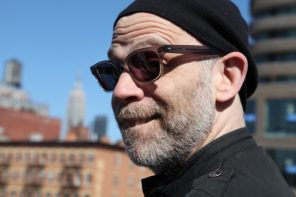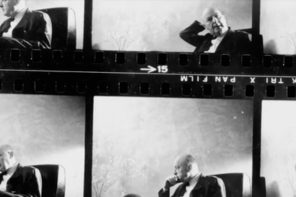Over 100 students, alumni, faculty and community members protested Union Seminary’s plan to build a 40-story luxury condo high rise on our Harlem campus last week. Following the rally, students staged a 24-hour sit-in outside the executive office suite.
The embattled administrators responded with deafening silence. While I was heartened by my fellow students’ activism, participating in the rally and the sit-in left me deeply troubled about the future of our institution.
I came to Union because the school has been and continues to be in many ways on the forefront of progressive activism rooted in Christian teaching for more than a century. Professor Cornel West called Union, “the institutional expression of my core identity as a prophetic Christian.” This institutional identity and mission is at stake with the proposed luxury development.
The most depressing part of the months-long fight for any information or open conversation with our administration came when I asked my professor Serene Jones, who also serves as Union’s President, if the institution was worth saving at any cost. The only answer to the question that doesn’t make these gothic walls an idol would be a simple “of course not.” President Jones only responded, “My job is to make sure Union survives another fifty years.”
I’ve sat in classes and chapel services and in the homes of the Union administrators who not only championed this plan, but implied that is divinely sanctioned. I don’t doubt they’re convinced they must commit this act to achieve the greater good. What I do doubt is the need to raise $150,000,000 for building repairs the administration claims will cost less than one-third of that amount. I do doubt why a seminary needed to hire New York City’s top real estate lobbyist in 2010 and has paid him $120,000 over the past five years. I do doubt the ethics of silencing faculty from speaking out against the plan.
But doubting the ethics of leaders only gets you so far. I want to envision a better future for Union.
First, I’d hope for honesty. To start the process of regaining student trust, the Board should invite conversations about the finances and ethics of this plan. Administrators should openly address criticisms of the way the project has been handled thus far, and the faculty must be empowered to oppose the plan.
Next, the importance of theological grounding: since Union began looking at this project five years ago, President Jones has taught two seminars on “Economics and Theology.” I was a student in the second iteration. In class and in the public sphere, Jones has been one of the loudest critics of the morality of capitalism. She has even blamed it for the decline in church attendance: “The decline in the numbers of people going to church in this country in mainline Protestant communities is in part a symptom of the ways in which capitalism has gutted our value systems so that people no longer even imagine the need for communities of moral formation and faith.”
But since the project became public in October Jones has gone silent on theology. When she did talk about God to the New York Times, President Jones sounded to my ears like a prosperity gospel preacher.
Union’s faculty and students care deeply about how theology applies to tough moral dilemmas like Union’s finances and future. The Board should honor this foundational commitment by basing all discussions about the project in sound theology. I would propose that such a process could begin with a formal theological defense of the project’s ethics with time for rebuttal and debate.
And finally, Union was founded as the first seminary located in a major city. Our commitment to New York City and the needs of urban communities is central to Union’s future. During one community discussion of the project, the option of moving Union’s campus came up. President Jones said, “We’re a New York institution.” The question for Union to consider is which New York it commits itself to? The rapidly gentrifying New York that drives people from their West Harlem homes? The prestigious faith councils of Mayor Bill De Blasio’s New York? Or will Union stand with community organizations like Faith in New York (run by a Union graduate)?
Union’s commitment to the city does not mean standing with the Manhattan elite. Students don’t come to Union for its location adjacent to Columbia University, but for its commitment to social justice and liberation theology. Union’s commitment to the city means reaffirming the founders decree in 1836 that they were “deeply impressed by the claims of the world upon the church.” What are those claims today? How to perpetuate our institution forever, no matter what the cost?
Or could they be, how will religious institutions take a stand against the immorality of unbridled capitalism? And if we agree that’s the claim of the world on the church today, how do we assess our own complicity and repent?





